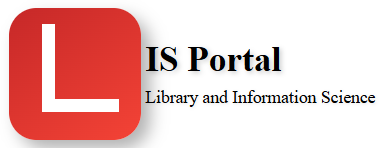|
Topics
|
Weightage in
%
|
- Types of Libraries — Academic. Public and Special,
- Library Legislation and Library Acts in Indian States; The Press and Registration of Books Act:
- Laws of Library Science.
- Professional Associations – National — ILA, IASLIC, IATLIS;International — IFLA, ALA, CILIP, ASLIB, SLA; Role of UGC, RRRLF and UNESCO in Promotion and Development of Libraries.
- Library and Information Science Education in India
- Library Extension Activities.
- Trends in Library and Information Science.
|
5
|
- Data, information, Knowledge and Wisdom.
- Information Life Cycle – Generation. Collection, Storage and Dissemination.
- Information Science – Relationship with other subjects. Information Society and Knowledge Society.
- Communication — Concept, Types, Theories, Models, Channels and Barriers: Trends in Scholarly communication.
- IPR and Legal Issues – Categories. Conventions. Treaties, Laws.
- Right to Information Act (RTI); Information Technology Act.
- National Knowledge Commission; National Mission on Libraries
|
5
|
- Information Literacy – Areas. Standards, Types and Models;Trends in Information Literacy
- Information Sources – Nature. Characteristics. Types and Formats.
- Sources of Information – Primary. Secondary and Tertiary:Documentary and Non-Documentary.
- Reference Sources – Bibliographical, Biographical. Educational, Language and Geographical.
- Electronic Information Resources – Subject Gateways. Web Portals. Bulletin Boards Discussion Forums /Groups.
- Databases: Bibliographic, Numeric, Full text. Multimedia: Open Access Databases.
- Evaluation of Reference Sources and Web Resources.
- Search and Discovery Services.
- Library Resource Sharing and Library Consortia — National and International.
- National Information Systems and Networks: NISCAIR, DESIDOC. SENDOC, ENVIS, INFLIBNET, DELNET, NICNET, ERNET, National Knowledge Network (NKN), Biotechnology Information System Network
- International Information Systems and Networks: INIS, AGRIS, INSPEC, MEDLARS, BIOSIS, ERIC, Patent Information System (PIS). Biotechnology Information System (BIS).
|
15
|
- Type of Users – User Studies, User Education.
- Community Information Services.
- Reference Service — Concept and Types; Referral Services.
- Alerting Services – CAS, SDI, Inter Library Loan and Document delivery
- Mobile based Library Services and Tools — Mobile OPAC. Mobile Databases.
- Mobile Library Website, Library Apps, Mobile Library Instructions, Augmented Reality, SMS Alerts, Geo-Location, Reference Enquiry.
- Web 2.0 and 3.0 – Library 2.0- Concept, Characteristics, Components; Instant Messaging. RSS Feeds, Podcasts, Vodcasts. Ask a Librarian
- Collaborative Services- Social Networks, Academics Social Networks, Social Tagging, Social Bookmarking.
|
10 |
- Universe of Knowledge – Nature and Attributes; Modes of Formation of Subjects.
- Knowledge Organisation – Classification -Theories, Canons, and Principles;
- Sample Knowledge Organisation System (SKOS), Taxonomies, Folksonomy, Trends in Classification.
- Mapping of Subjects in Library Classification Schemes — DDC. UDC and CC.
- Knowledge Organisation: Cataloguing – Canons and Principles; Centralized and Co-operative Catalogue; Library Cataloguing Codes: CCC and AACR – II.
- Standards of Bibliographic Record Formats and Description — ISBD, MARC 21, CCF, RDA, FRBR, Bibframe.
- Standards for Bibliographic information Interchange & Communication – ISO 2709, Z39.50, Z39.71.
- Metadata Standards: Dublin Core; MARC21, METS, MODES,
- Indexing Systems and Techniques: Assigned – Pre-coordinate; Post-Coordinate; Derived- Title-based; Vocabulary Control.
- Abstracting — Types and Guidelines.
- Information Retrieval System — Features, Components, Madels and
- Ontology — Tools (RDF, RDFS, Protege).
|
15 |
|
|
- Computer Technology – Character Representation (ASCII, ISCII,Unicode);
- Computer Hardware, Software; Storage Devices; Input and Output Devices.
- Types of Software – System Software, Application Software.
- Telecommunication – Transmission Channels. Mode, and Media.. ISDN. PSDN,
- Computer Networks – Topologies, Types of Networks — LAN, MAN. WAN.
- Internet – Web browsers, WWW, E-mail; Search Engines, Meta and Entity Search engines.
- Internet Protocols and Standards — HTTP, FTP. SMTP, TCP/IP. URI, URL.
- Hypertext. Hypermedia, Multimedia, Video conferencing, Virtual Reality.
- Cloud Computing
- Semantic Web, Linked Data, Big Data. Data Mining. Data Harvesting
|
|
10 |
- Library Automation — Areas, Planning, Selection of Hardware and software.
- Implementation and Evaluation; Standards for Library Automation.
- Barcode, REID, QR Code, Biometric, Smartcard: Features and application.
- Digitization — Planning, Selection of Hardware. Software, Process. Issues.
- Digital Library Genesis, Characteristics, types, Architecture; Standard, format and protocols, DOI.
- Digital preseration – Need. Purpose. Standards, Methods. Techniques. Projects (National and International)
- Digital Library Initiatives — National and International.
- Institutional Repositories – Need. Purpose, Types and Tools;
Institutional Repositories in India; ROAR, ROAR, SHERPA
- Content Management Systems — Architecture, Data Integration. CMS Software —
- Selection, Implementation and Evaluation.
|
15 |
- Research
- Types of Research — Basic and Applied, Interdisciplinary and
- Research Methods: Historical, Descriptive, Experimental and
- Research Design – Selection of Research Problem, Review of Literature; Formulation of Research Problem; Hypothesis — Formulation, Types and Testing; Sampling Techniques.
- Methods of Data Collection
- Data Analysis and Interpretation
- Plagiarism: Concept and Types.
- Statistical Packages — Spreadsheet, SPSS, Bibexcel, ‘R Statistics.
- Research Report Writing and Citation Tools — Structure. Style, Contents, Guidelines;
- Style Manuals; Online Citation Tools; Reference Management
Tools; Evaluation of Research Report.
- Metric Studies in LIS – Bibliometrics, Scientometric, Webometrics, Altmetrics;
- Impact Factors — Journal, h-Index, g-Index, 110 Index.
- Trends in Library and Information Science Research.
|
15 |
- General Aptitude / Awareness/Knowledge about INFLIBNET
|
10 |
